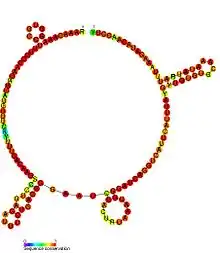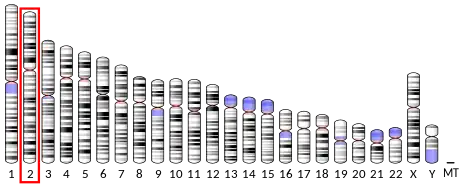| PCGEM1 | |||||||||||||||||||||||||||||||||||||||||||||||||||
|---|---|---|---|---|---|---|---|---|---|---|---|---|---|---|---|---|---|---|---|---|---|---|---|---|---|---|---|---|---|---|---|---|---|---|---|---|---|---|---|---|---|---|---|---|---|---|---|---|---|---|---|
| Identifiers | |||||||||||||||||||||||||||||||||||||||||||||||||||
| Aliases | PCGEM1, LINC00071, NCRNA00071, PCAT9, prostate-specific transcript (non-protein coding), prostate-specific transcript, PCGEM1 prostate-specific transcript | ||||||||||||||||||||||||||||||||||||||||||||||||||
| External IDs | OMIM: 605443 GeneCards: PCGEM1 | ||||||||||||||||||||||||||||||||||||||||||||||||||
| |||||||||||||||||||||||||||||||||||||||||||||||||||
| |||||||||||||||||||||||||||||||||||||||||||||||||||
| |||||||||||||||||||||||||||||||||||||||||||||||||||
| Wikidata | |||||||||||||||||||||||||||||||||||||||||||||||||||
| |||||||||||||||||||||||||||||||||||||||||||||||||||
| Prostate-specific transcript 1 | |
|---|---|
 Predicted secondary structure and sequence conservation of PCGEM1 | |
| Identifiers | |
| Symbol | PCGEM1 |
| Rfam | RF01981 |
| Other data | |
| RNA type | Gene; |
| Domain(s) | Eukaryota; |
| GO | GO:0042981 |
| SO | SO:0001463 |
| PDB structures | PDBe |
Prostate-specific transcript 1 (non-protein coding), also known as PCGEM1, is a long non-coding RNA gene. In humans, it is located on chromosome 2q32. It is over-expressed in prostate cancer.[3][4] In a study of prostate tumours from 88 men, levels of PCGEM1 were found to be higher in prostate cancer cells in African-American men than in Caucasian-American men. The mortality rate of prostate cancer is highest in African-American men.[5]
PCGEM1 inhibits doxorubicin-induced apoptosis of cells, via delayed induction of p53 and p21.[6]
See also
References
- 1 2 3 GRCh38: Ensembl release 89: ENSG00000227418 - Ensembl, May 2017
- ↑ "Human PubMed Reference:". National Center for Biotechnology Information, U.S. National Library of Medicine.
- ↑ Srikantan V, Zou Z, Petrovics G, et al. (October 2000). "PCGEM1, a prostate-specific gene, is overexpressed in prostate cancer". Proc. Natl. Acad. Sci. U.S.A. 97 (22): 12216–12221. Bibcode:2000PNAS...9712216S. doi:10.1073/pnas.97.22.12216. PMC 17321. PMID 11050243.
- ↑ Bialkowska-Hobrzanska H, Driman DK, Fletcher R, Harry V, Razvi H (February 2006). "Expression of human telomerase reverse transcriptase, Survivin, DD3 and PCGEM1 messenger RNA in archival prostate carcinoma tissue". Can J Urol. 13 (1): 2967–2974. PMID 16515751.
- ↑ Petrovics G, Zhang W, Makarem M, et al. (January 2004). "Elevated expression of PCGEM1, a prostate-specific gene with cell growth-promoting function, is associated with high-risk prostate cancer patients". Oncogene. 23 (2): 605–611. doi:10.1038/sj.onc.1207069. PMID 14724589.
- ↑ Fu X, Ravindranath L, Tran N, Petrovics G, Srivastava S (March 2006). "Regulation of apoptosis by a prostate-specific and prostate cancer-associated noncoding gene, PCGEM1". DNA Cell Biol. 25 (3): 135–141. doi:10.1089/dna.2006.25.135. PMID 16569192.
Further reading
- Ifere GO, Barr E, Equan A, et al. (2009). "Differential effects of cholesterol and phytosterols on cell proliferation, apoptosis and expression of a prostate specific gene in prostate cancer cell lines". Cancer Detect. Prev. 32 (4): 319–328. doi:10.1016/j.cdp.2008.12.002. PMID 19186008.
- Enciso-Mora V, Hosking FJ, Houlston RS (2010). "Risk of breast and prostate cancer is not associated with increased homozygosity in outbred populations". Eur. J. Hum. Genet. 18 (8): 909–914. doi:10.1038/ejhg.2010.53. PMC 2987391. PMID 20407466.
- Romanuik TL, Wang G, Morozova O, Delaney A, Marra MA, Sadar MD (2010). "LNCaP Atlas: gene expression associated with in vivo progression to castration-recurrent prostate cancer". BMC Med. Genom. 3: 43. doi:10.1186/1755-8794-3-43. PMC 2956710. PMID 20868494.
- Ifere GO, Ananaba GA (November 2009). "Prostate cancer gene expression marker 1 (PCGEM1): a patented prostate- specific non-coding gene and regulator of prostate cancer progression". Recent Pat DNA Gene Seq. 3 (3): 151–163. doi:10.2174/187221509789318360. PMID 19891595.
External links
This article is issued from Wikipedia. The text is licensed under Creative Commons - Attribution - Sharealike. Additional terms may apply for the media files.

